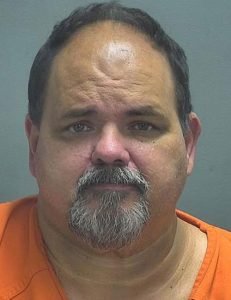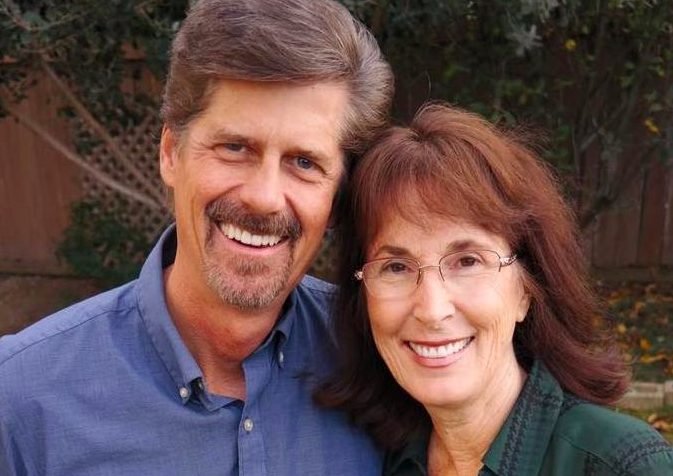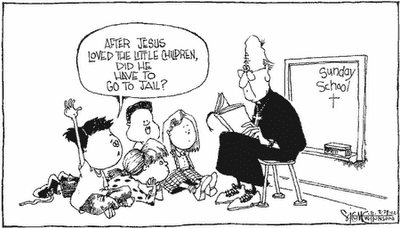
In the mid-2000s, my wife and I drove to Pontiac, Michigan to have lunch with a couple we attended college with at Midwestern Baptist College in Pontiac, Michigan from 1976-1979. We hadn’t talked to each other in almost twenty years. We had a delightful time, but it became clear to me that we were living in very different religious spheres. (Our renewed friendship ended after I became an atheist in 2008.)
By the mid-2000s, my theology had moved from Independent Fundamentalist Baptist (IFB) to generic Evangelical to Emerging/Emergent church. A few years later, I would deconvert and become an atheist. Our friends had moved leftward from the IFB theology and practice of their college years to garden variety Evangelicalism. In their eyes, they were free of the legalism and extremism of the IFB church movement.
Yesterday, I stumbled upon several websites and podcasts dedicated to helping people free themselves from IFB legalism. I call this the ex-IFB movement. I listened to several podcasts, coming away with troubling thoughts about their objective and goal: freeing people from IFB legalism and extremism while remaining Fundamentalists.
There’s no question about whether the IFB church movement is legalistic and extremist. It is. Any move away from IFB beliefs and practices is a good one. IFB churches and pastors have caused incalculable harm, both psychologically and physically. That said, many of the people fleeing the IFB church movement for kinder, gentler sects and churches are, in fact, still Fundamentalists. One ex-IFB preacher said that many people have been bloodied by IFB churches and pastors. He compared them to a wounded deer running in the woods. According to this Baptist preacher, wounded believers run away from the churches and pastors who have bloodied them, but often keep on running, away from Jesus. The solution, according to him, was for these bloodied Christians to run to Jesus, the man who shed his blood for their sins. I found his sermon (and the church service) to be quite Fundamentalist.
I have long argued that Evangelicals are inherently Fundamentalist; that Evangelicalism consists of two Fundamentalist components: social and theological Fundamentalism. I talk about this fact more thoroughly in a post titled Are Evangelicals Fundamentalists? If you are not familiar with my thinking on this subject, please read the aforementioned post.
Evangelicals (of which the IFB church movement is a subset) have core theological beliefs. To be an Evangelical, you MUST believe these things. While there is theological diversity within Evangelicalism, when it comes to foundational beliefs, Evangelicals pretty much believe the same things. Take inerrancy. All Evangelicals believe the Bible is inspired, inerrant, and infallible. What, exactly, these words mean varies among Evangelical sects, churches, colleges, and pastors. Ask a hundred Evangelicals if they believe the Bible they carry to church on Sunday is without error, the overwhelming majority of them will say, Bless God, Yes!
It is social Fundamentalism that often causes people to leave IFB churches for friendlier confines. These disaffected Fundamentalists don’t like all the rules (church standards) so they seek out churches and colleges where social standards are relaxed. What’s troubling is the fact that such people often just trade one form of Fundamentalism for another. Their former churches had lots of rules. Their new churches? Fewer rules, but every bit as legalistic. One can’t be a Bible literalist and an inerrantist without having Fundamentalist beliefs — both theologically and socially.
Those leaving the IFB church movement are seeking out churches where they would have more personal freedoms. I understand their motivations, however, when quizzed about their “freedoms,” they reveal that they still have Fundamentalist tendencies. They may want to drink alcohol, smoke cigars, go to movies, wear pants (women), cuss, and watch R-rated TV programs. However, when asked about abortion, LGBTQ rights, Transgender people, same-sex marriage, premarital and extramarital sex, and a host of other personal freedoms, you quickly find out that they still have narrow Fundamentalist beliefs. (And let’s not forget that more than 80% of white voting Evangelicals voted for Donald Trump in 2016 and 2020. I suspect this percentage is even higher among IFB adherents.)
Religion is inherently legalistic. If you want to be part of a Christian church, there will be rules of some sort. Any time humans congregate together or form tribes (even atheists), written and unwritten rules govern the behavior of participants. Even families have social rules family members are expected to adhere to when the family gathers together. To return to the preacher’s wounded deer analogy, wounded, bloodied IFB church members should exit their churches as fast as they possibly can. Run! And keep running until your former IFB church and its pastors are distant in the rearview mirror. However, instead of running to another Evangelical church, take a deep breath and survey the religious landscape. You have been conditioned to view liberal and progressive Christian churches as evil or apostate. They are not. You might find such churches are a breath of fresh air, places free of most (not all) of the legalism found in IFB and Evangelical churches. Better yet, you might ponder whether religion itself is the problem. Maybe atheism or agnosticism is the solution. Maybe attending a Unitarian-Universalist church might give you the sense of community you are seeking. Don’t settle for a less intrusive brand of Fundamentalism.
The wounded deer runs through the woods, hoping to avoid hunters, be they IFB preachers or ex-IFB men of God. The deer recognizes that guns are guns regardless of who is shooting them. To reach a place where he or she can heal, the deer must find a place deep in the woods inaccessible to hunters; a place where healing can take place without sermons, Bible verses, and religious dogma. Ex-IFB preachers still want to mount your head on the wall or put you in a reserve where their brand of Fundamentalism controls your life. Sure, living in a deer reserve is better than being meat in an IFB preacher’s freezer, but living out your days in a fenced-in reserve is a poor substitute for running free in the fields and woods.
Bruce Gerencser, 66, lives in rural Northwest Ohio with his wife of 45 years. He and his wife have six grown children and thirteen grandchildren. Bruce pastored Evangelical churches for twenty-five years in Ohio, Texas, and Michigan. Bruce left the ministry in 2005, and in 2008 he left Christianity. Bruce is now a humanist and an atheist.
Connect with me on social media:
Your comments are welcome and appreciated. All first-time comments are moderated. Please read the commenting rules before commenting.
You can email Bruce via the Contact Form.









